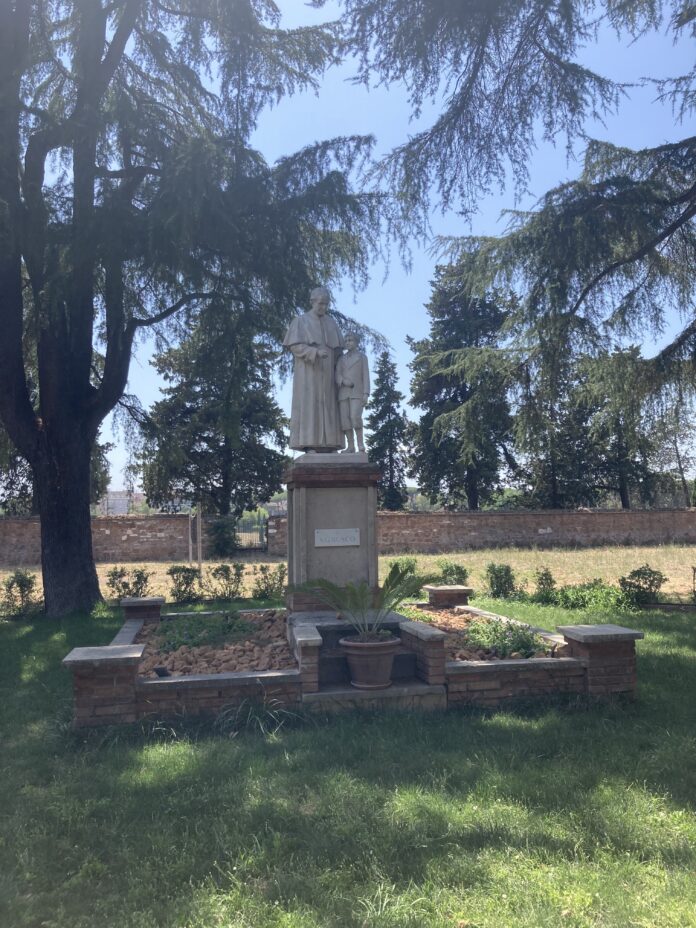HOLY MASS ON THE SOLEMNITY OF ALL SAINTS
HOMILY OF HIS HOLINESS BENEDICT XVI
Vatican Basilica
Wednesday, 1 November 2006
Dear Brothers and Sisters,
Our Eucharistic celebration began with the exhortation: “Let us all rejoice in the Lord”. The liturgy invites us to share in the heavenly jubilation of the Saints, to taste their joy. The Saints are not a small caste of chosen souls but an innumerable crowd to which the liturgy urges us to raise our eyes. This multitude not only includes the officially recognized Saints, but the baptized of every epoch and nation who sought to carry out the divine will faithfully and lovingly. We are unacquainted with the faces and even the names of many of them, but with the eyes of faith we see them shine in God’s firmament like glorious stars.
Today, the Church is celebrating her dignity as “Mother of the Saints, an image of the Eternal City” (A. Manzoni), and displays her beauty as the immaculate Bride of Christ, source and model of all holiness. She certainly does not lack contentious or even rebellious children, but it is in the Saints that she recognizes her characteristic features and precisely in them savours her deepest joy.
In the first reading, the author of the Book of Revelation describes them as “a great multitude which no man could number, from every nation, from all tribes and peoples and tongues” (Rv 7: 9).
This people includes the Saints of the Old Testament, starting with the righteous Abel and the faithful Patriarch, Abraham, those of the New Testament, the numerous early Christian Martyrs and the Blesseds and Saints of later centuries, to the witnesses of Christ in this epoch of ours.
They are all brought together by the common desire to incarnate the Gospel in their lives under the impulse of the Holy Spirit, the life-giving spirit of the People of God.
But “why should our praise and glorification, or even the celebration of this Solemnity, mean anything to the Saints?”. A famous homily of St Bernard for All Saints’ Day begins with this question. It could equally well be asked today. And the response the Saint offers us is also timely: “The Saints”, he says, “have no need of honour from us; neither does our devotion add the slightest thing to what is theirs…. But I tell you, when I think of them, I feel myself inflamed by a tremendous yearning” (Disc. 2, Opera Omnia Cisterc. 5, 364ff.).
This, then, is the meaning of today’s Solemnity: looking at the shining example of the Saints to reawaken within us the great longing to be like them; happy to live near God, in his light, in the great family of God’s friends. Being a Saint means living close to God, to live in his family. And this is the vocation of us all, vigorously reaffirmed by the Second Vatican Council and solemnly proposed today for our attention.
But how can we become holy, friends of God? We can first give a negative answer to this question: to be a Saint requires neither extraordinary actions or works nor the possession of exceptional charisms. Then comes the positive reply: it is necessary first of all to listen to Jesus and then to follow him without losing heart when faced by difficulties. “If anyone serves me”, he warns us, “he must follow me; and where I am, there shall my servant be also; if any one serves me, the Father will honour him” (Jn 12: 26).
(To continue reading, please see here).











